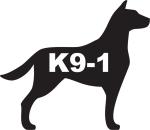Steven Lindsay's concept of Hydran-Protean side effects in dog training discusses the unintended consequences that can occur when aversive training methods are used improperly. The name draws on classical mythology, referencing both the Hydra and Proteus to illustrate how such training techniques can lead to unforeseen and often more severe behavioral issues.
The term "Hydran" refers to the mythical Hydra, a creature that would regrow two heads for each one severed. This part of the analogy suggests that inappropriate or harsh punishment might initially seem to solve a problem (like stopping a behavior), but can actually lead to multiple new problems. For instance, harsh punishment might suppress one undesirable behavior but cause several other behavioral issues to arise, as the dog reacts to the stress or fear induced by such treatment.
The "Protean" part of the concept refers to Proteus, another mythical figure known for his ability to change shape. This suggests that the problems created by such training methods might change form and manifest in unexpected ways, making them hard to predict and control. This is particularly relevant in training contexts where the root causes of behavioral issues are not addressed, leading to a shifting array of other problems.
These side effects underscore the idea that overly harsh or inappropriate interventions can escalate conflicts and aversive arousal in dogs. Instead of resolving the underlying issues, these methods may transform them into new, possibly more severe forms of behavioral problems. This illustrates a cycle of conflict and distress that not only fails to solve the original problems but potentially creates a cascade of additional issues .


Responses